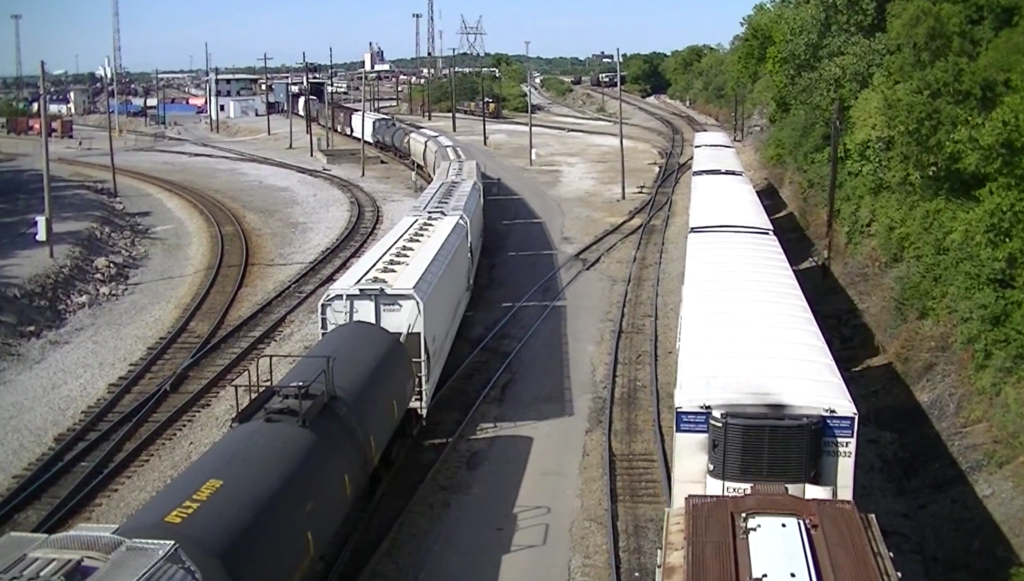
There’s a familiar sound in South Nashville between 100 Oaks and Harding Place — screeching and slamming. It’s the audible evidence that one of the larger rail yards in the CSX system is hidden in plain site just a few miles outside of downtown. But there’s renewed talk of relocating.
Nashville business leaders are pushing for a pie-in-the-sky approach to transit. And the 10-point action plan released last week included jumpstarting conversations about moving the sprawling Radnor Rail Yard out of town to free up the tracks for possible commuter traffic.
Watch: Trainspotter video of building trains at the Radnor yard
“That’s been discussed for a long time,” says Liza Joffrion, head of multimodal for the Tennessee Department of Transportation. “Nashville is a bottleneck for CSX.”
With all the incoming and outgoing freight trains, there’s virtually no chance the company would share its right-of-way with passenger cars. But Joffrion says relocating the operation could provide mutual benefits. She says the city is already a choke-point for the company. Maybe a fresh start somewhere else with more space would fix that.
For commuter rail, it could mean no longer being sidetracked by national freight just passing through. And of course, developers would also line up to have a shot at hundreds of acres so close to downtown. The Nashville Area Chamber of Commerce calls it a “game-changing economic development opportunity” in their Moving Forward report.
More: Download the Moving Forward report.
The Nashville Metropolitan Planning Organization already has its eyes on a prospective relocation site in Rutherford County where I-24 crosses 840. The MPO lays out the pros and cons in its most recent freight study. One plus would be proximity to Nissan’s factory in Smyrna, which is one of the most productive in the country.
TDOT has done the math. It estimates $767 million to pay for such a move — considerably more than some of the other cities relocating urban rail yards, like Charlotte.
Joffrion says she’s willing to start a discussion but warns it’s a long process.
“I would think a decade would be speedy,” she says.
As for CSX, a spokesperson says, “any proposals would be evaluated for feasibility and operational viability,” though there have been no formal discussions.
The company points out that it also has to consider whether relocating would end up putting more freight traffic on Nashville’s highways, which would defeat the larger purpose.


